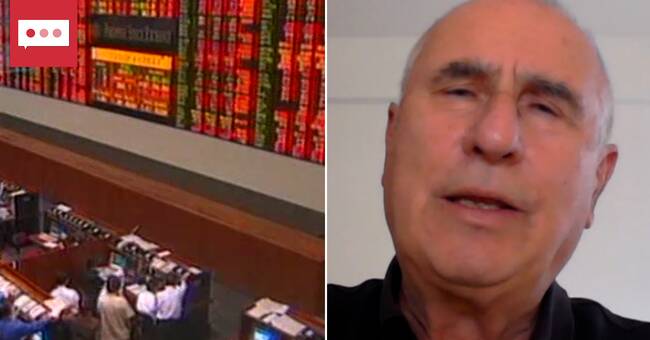In total, the Swedes 'fund assets amount to SEK 6,500 billion, according to the Fund Companies' Association's latest compilation.
An increase of 155 billion in October alone.
But fees to fund managers eat up a significant portion of the return.
The Swedish Financial Supervisory Authority's survey shows that the major banks' most popular funds are all actively managed mixed funds with annual fees between 1 and 1.5 per cent.
Despite this, it has been difficult to beat the Stockholm Stock Exchange's index over a ten-year period.
This is how the major banks' most common funds have developed over the past ten years, compared with the Stockholm Stock Exchange's 30 most traded shares.
Photo: SVT Design
- Most people probably choose actively managed funds because they give the stock market return on average, but in a way you buy a lottery ticket.
Because sometimes they give a better and sometimes a worse return than the stock market, says Harry Flam, professor of international economics at Stockholm University, at Ekonomibyrån.
Nordea, Handelsbanken and SEB tell Ekonomibyrån that they believe that a comparison with the Stockholm Stock Exchange's index is not relevant as their largest funds also include fixed income securities.
- Mixed funds are suitable for savers who have a certain risk level, it is the most important advisory ingredient, which risk level the customer should end up in. You get a breadth in investment assets, it is a good service for savers who are a little less interested, says Fredrik Nordström, CEO of Fondbolagens association in Ekonomibyrån.
Fund manager: Many people like active management
Handelsbanken's fund manager Magdalena Wahlqvist Alveskog says that many savers like actively managed funds.
- You get, for example, risk diversification and you get an advocacy work for sustainability from our side.
You pay for it.
Over time, all our funds will provide a return over the index, she tells Ekonomibyrån.
"Think they know better than the stock market"
Together with colleague Roine Vestman, Harry Flam has compared the funds' returns with the benchmark index and the Stockholm Stock Exchange's 30 most traded shares.
Regardless of whether you as a small saver choose actively managed funds with high fees or index funds with lower fees, it is important to keep track of the type of fund you save in, says Harry Flam.
- It showed that some index funds also performed significantly worse than benchmark indices, which they should not do.
They should have exactly the same return, he says.
He therefore urges savers to be vigilant about the type of fund you save in, regardless of whether it is actively managed or follows the index.
- People have great confidence in both fund managers and bank advisers and many private individuals also believe that they know better than the stock market.
Do not miss the entire Ekonomibyrån section Fondblåsningen on SVT Play.
From the archive: This is how the Swedes became fund savers

